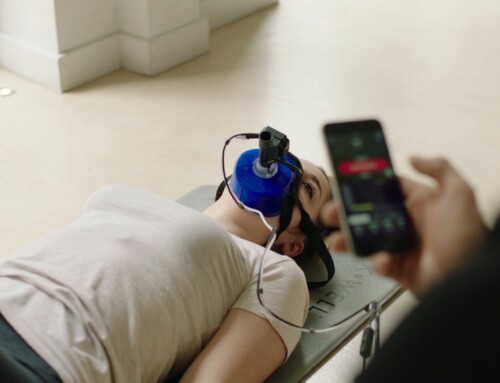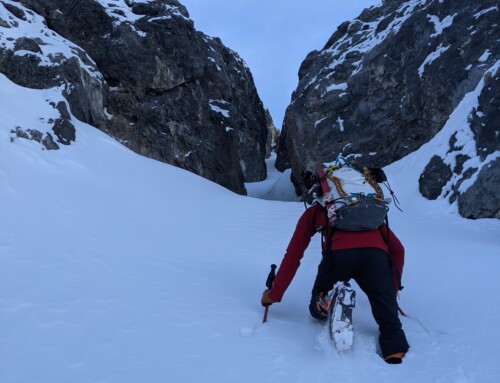Author: Liz Jones
This is not a new topic; in fact many of you may already have a plethora of knowledge on the subject. Most of us know that good sleep hygiene is important. The goal of this blog is to show you some facts and research that will hopefully encourage more practice of good sleep habits because even though you know what you should be doing, you may not be practicing those habits. There are three major influences of your lifestyle that can affect your sleep; light, food, and space.
Light.
Yes, watching tv, or being on the computer, phone or tablet in bed is bad for your sleep. Actually, even doing these things close to the time you will get in bed affects your sleep. The changes are in your hormone levels, specifically melatonin is affected, and levels don’t return to normal by the time you head for bed. Melatonin is influenced by the presence of blue light. Blue light is what we recognize as the sun coming up, and therefore our body starts to come out of deep sleep when blue light is present. LED or backlit electronics emit large amounts of blue light. After viewing a screen it is difficult for you to fall asleep, and find the deep restful sleep that is so important. Another source of blue light is light bulbs. CFL bulbs are becoming a must-have in every household. Although these bulbs are more energy efficient and economically feasible, they also emit more blue light than the standard light bulb. This light is absorbed through non visual photoreceptors; meaning even if you close your eyes, you are still absorbing light that is altering the levels of melatonin in your brain.
 Melatonin plays such an important role in sleep and wake that it is helpful to know a little more about the mechanism. About two hours before you would normally go to bed your pineal gland, in your brain, secretes large amounts of serotonin. This induces the sleepy feeling we are all too familiar with. Blue light that is registered in your brain suppresses the secretion of serotonin, taking away the sleepiness, and increasing wakefulness. Not only does it affect your sleep, but also plays a role in thermoregulation and blood pressure. Serotonin is a precursor to melatonin, so the less serotonin means less melatonin.
Melatonin plays such an important role in sleep and wake that it is helpful to know a little more about the mechanism. About two hours before you would normally go to bed your pineal gland, in your brain, secretes large amounts of serotonin. This induces the sleepy feeling we are all too familiar with. Blue light that is registered in your brain suppresses the secretion of serotonin, taking away the sleepiness, and increasing wakefulness. Not only does it affect your sleep, but also plays a role in thermoregulation and blood pressure. Serotonin is a precursor to melatonin, so the less serotonin means less melatonin.
Food.
It is a common belief that eating immediately before you go to sleep is bad for you. Some claim it is bad for your digestion, and more difficult to lose weight if you go to sleep within an hour or two after eating. In some cases this is true, however some research is starting to prove the theory less credible. One of the major issues with eating right before bed is acid reflux. Being horizontal makes acid spill out of your stomach more easily, which causes the burning sensation associated with acid reflux. Eating large processed meals, as dinner often is, that take a long time for your stomach to digest contributes to inducing acid reflux. If you have a small natural snack before bed, the acid reflux becomes less of an issue. Most of the research that counters the notion that eating late is harmful argues that the issue is what you eat, rather than when you eat.
 Food is fuel, so it is designed to give you energy. If you eat food that is a source of quick energy late at night, then it is likely to prevent falling asleep. There are two options to prevent this; you could just not eat, or you could have a light easily digestible snack that isn’t high in simple carbohydrates or sugars. The only problem with not eating is that going to bed hungry can also disrupt your sleep patterns. There is a balance of eating with enough time to digest, but still getting enough to stay full until bedtime. Find what works for you, and stick with it. If you miss that window, then you have to gage just how hungry you are, and decide whether it might impact your sleep. Food that can disrupt sleeping is readily available. Any type of stimulant, such as caffeine, will throw off your circadian rhythm. Alcohol also influences your sleep. Even though you may sleep through the night when you consume alcohol, it prevents you from going into deep sleep, which explains why people often feel more tired the next day.
Food is fuel, so it is designed to give you energy. If you eat food that is a source of quick energy late at night, then it is likely to prevent falling asleep. There are two options to prevent this; you could just not eat, or you could have a light easily digestible snack that isn’t high in simple carbohydrates or sugars. The only problem with not eating is that going to bed hungry can also disrupt your sleep patterns. There is a balance of eating with enough time to digest, but still getting enough to stay full until bedtime. Find what works for you, and stick with it. If you miss that window, then you have to gage just how hungry you are, and decide whether it might impact your sleep. Food that can disrupt sleeping is readily available. Any type of stimulant, such as caffeine, will throw off your circadian rhythm. Alcohol also influences your sleep. Even though you may sleep through the night when you consume alcohol, it prevents you from going into deep sleep, which explains why people often feel more tired the next day.
There are also foods that can help you sleep. The famous post-Thanksgiving dinner nap is no coincidence. Turkey contains tryptophan, which has been tested to convert to serotonin. As mentioned before, serotonin is the precursor to melatonin, and with increases in amount you will sleep better.
Space.
Your brain learns from your habits. If you take your work into the bedroom, whether it be papers that are piled up, or doing emails in bed, your brain will remember these behaviors. If you do it enough, when you get in bed to go to sleep your brain will think that it is time to do emails. It will note the stack of papers and possibly cause anxiety about the work you have to do tomorrow. Even laundry that needs done will distract your brain, and take away from the rest you want and need. Keeping your sleep space sacred will help your body recognize when it is time to rest, and when it is time to work.
Why?
Poor sleep, especially habitual poor sleep, can dramatically affect your ability to function both long term and short term. Your cognitive function decreases, which in turn affects your reflexes, memory, and level of thinking. Your fat storage and BMI are affected by how much sleep you get. Your blood pressure increases with less sleep as well. Other hormone levels in your brain are affected by serotonin and melatonin levels, specifically the Human Growth Hormone which aids in recovery from injury, workouts, and stimulates overall growth.
A good night’s sleep is life changing, and often underestimated. Put down your over achieving nature, and give more time and attention to sleep. You will likely make up the productivity, and live a healthier life, if you are getting a sufficient night’s sleep.
SOURCES:
Chellappa, Sarah Laxhmi, Roland Steiner, Peter Blattner, Peter Oelhafen, Thomas Götz, and Christian Cajochen. “Non-Visual Effects of Light on Melatonin, Alertness and Cognitive Performance: Can Blue-Enriched Light Keep Us Alert?” PLoS ONE 6.1 (2011).
Cohen, Arianne. “7 Physical Effects of Sleep Deprivation.” Fox News. FOX News Network, 16 Oct. 2014. 10 June 2015.
Dvorsky, George. “Why We Need To Sleep In Total Darkness.” Io9. N.p., 1 Oct. 2014. 10 June 2015.
George, C., T. Millar, P. Hanly, and M. Kryger. “The Effect Of L-Tryptophan On Daytime Sleep Latency In Normals: Correlation With Blood Levels.” Sleep 12.4 (2015): 345-53.
Gooley, Joshua J., Kyle Chamberlain, Kurt A. Smith, Sat Bir S. Khalsa, Shantha M. W. Rajaratnam, Eliza Van Reen, Jamie M. Zeitzer, Charles A. Czeisler, and Steven W. Lockley. “Exposure to Room Light before Bedtime Suppresses Melatonin Onset and Shortens Melatonin Duration in Humans.” The Journal of Clinical Endocrinology & Metabolism 96.3 (2011).
McLaughlin, August. “The Negative Effects of Eating Before Bed.” Healthy Eating. SFGate, n.d. 10 June 2015.
Mercola, Dr. “Health Dangers of Eating Late at Night.” Mercola, 15 Nov. 2014. 10 June 2015.



